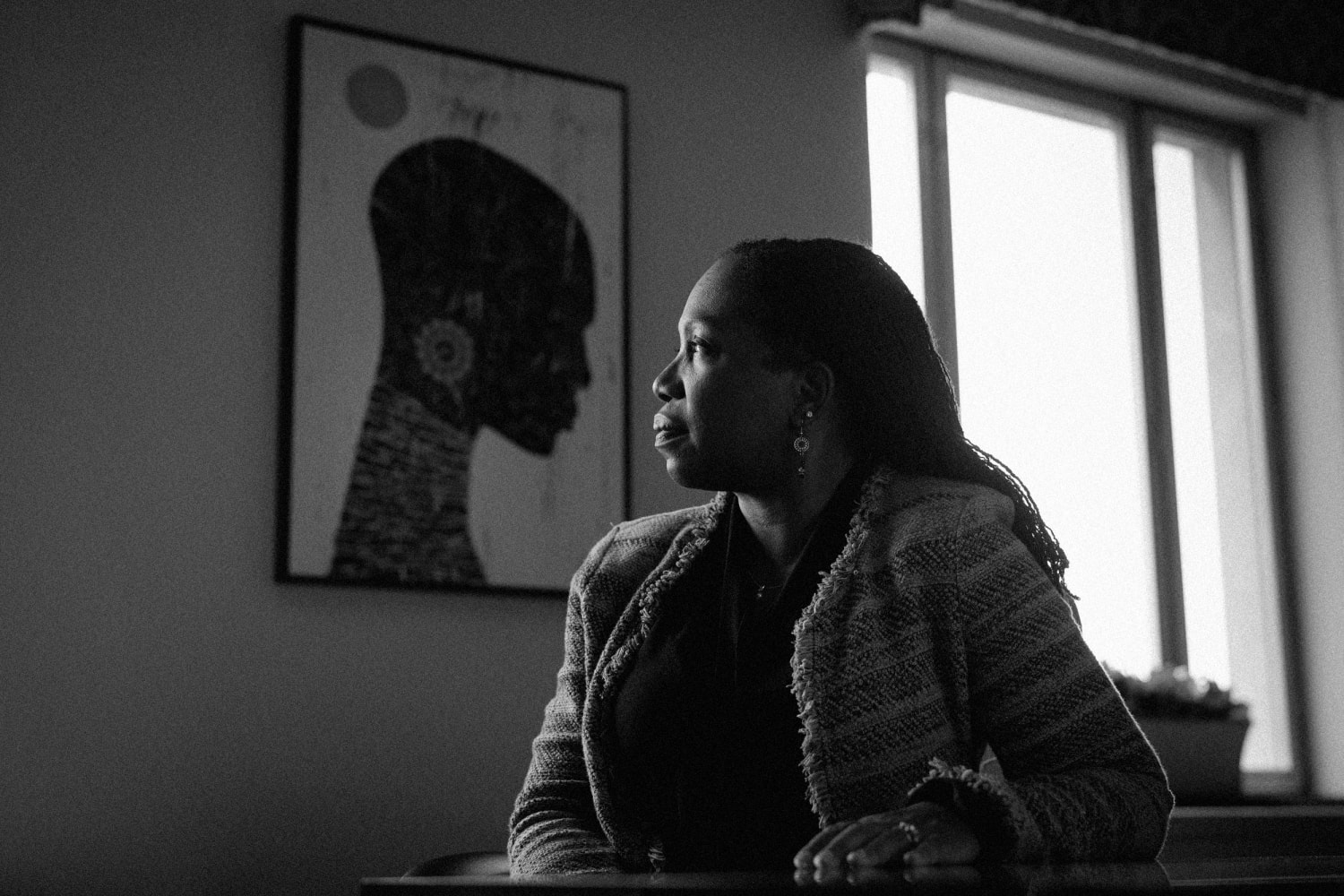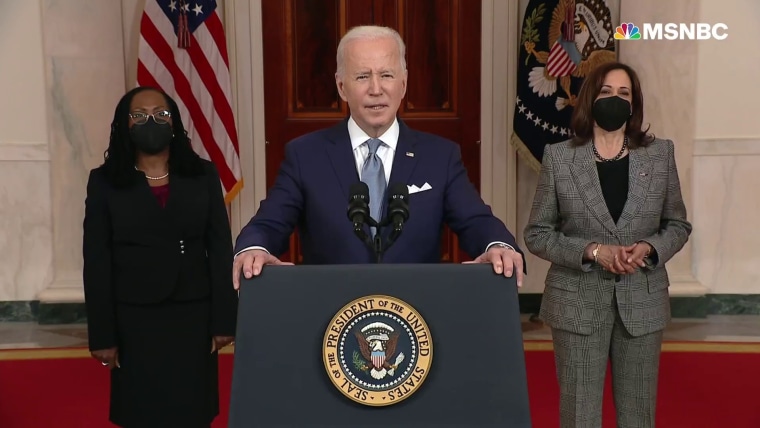President Joe Biden has given a lot of thought to his legacy, and his selection of Ketanji Brown Jackson, who would be the first Black woman on the Supreme Court, further cements one aspect of it.
“The symbolic value is significant to a lot of people who have felt outside the system, to have a Black woman on the Supreme Court and a Black woman vice president,” said the Rev. Al Sharpton, founder of the National Action Network and host of MSNBC’s “PoliticsNation.” “It really puts him at a whole different level in terms of inclusion and diversity. It is a star in his legacy.”
Jackson, who received the votes of three Republican senators after she was nominated to the U.S. Court of Appeals for the District of Columbia last year, still must win confirmation in the evenly divided Senate.
But on the high court, barrier breakers — and the presidents who nominate them — tend to be remembered by history.
Lyndon Johnson’s nomination of Thurgood Marshall, the first Black justice; Ronald Reagan’s selection of Sandra Day O’Connor, the first female justice; and Barack Obama’s pick of Sonia Sotomayor, the first Hispanic justice, are often pointed to as significant positive moments in their presidencies.
History has been on Biden’s mind, he said Friday, in remarks introducing Jackson at the White House.
“One floor below, we have several displays celebrating Black History Month,” Biden said. “One of them includes the judicial oath of office taken and signed by Justice Thurgood Marshall himself, an oath that will be once again administered to a distinguished American who will help write the next chapter in the history and journey of America.”
Biden’s selection of Jackson is unique in that he announced he would make history before he named his nominee. It was in a Democratic primary debate in South Carolina two years ago that Biden vowed he would choose a Black woman for the first vacancy that occurred on his watch.
“I’m looking forward to making sure there’s a Black woman on the Supreme Court, to make sure we in fact get every representation,” Biden said.
Moments earlier, during a commercial break in the debate, House Majority Whip Jim Clyburn, D-S.C., pulled Biden aside backstage and urged him to make that promise. Biden had been aware that Clyburn — who viewed a Supreme Court appointment as more consequential than a vice presidential pick — wanted him to lock in the pledge publicly. Biden’s aides had urged him not to use the debate as the venue for such an announcement, worrying that he might be seen as pandering to Black voters.
Clyburn, whose powerful endorsement still hung in the balance, didn’t care about the optics. He thought the announcement would help Biden politically and virtually ensure that the next nominee named by a Democratic president would be a Black woman.
While Biden heeded Clyburn’s counsel that night, in picking Jackson, he rebuffed the lawmaker’s lobbying on behalf of South Carolina’s J. Michelle Childs.
Biden called the two finalists who were not picked on Friday morning, after making his decision Thursday night, according to a person familiar with the process who was not authorized to speak about it publicly. Clyburn endorsed Jackson and praised Biden Friday afternoon.
“This is a glass ceiling that took far too long to shatter, and I commend President Biden for taking a sledgehammer to it,” Clyburn said in a statement.
South Carolina’s two Republican senators, Lindsey Graham and Tim Scott, both said Friday that they were unhappy Childs didn’t get the nod.
But Biden’s decision thrilled progressives, including many Black women, who say her experience working as a public defender and at the U.S. Sentencing Commission will add needed perspective to the court if she is confirmed.
“Judges, while they attempt to be ‘justice is blind,’ judges are not,” said Stacey Plaskett, a Democratic delegate from the Virgin Islands who was a prosecutor in the Justice Department under President George W. Bush. “They come to the court with their lived experience.”
Plaskett added that this moment is “a really an emotional time for so many Black women to finally be acknowledged for our scholarship and our hard work.”
In her own remarks at the White House Friday, Jackson noted that she was born 49 years to the day after Judge Constance Baker Motley, the first Black woman confirmed to a federal judgeship. Jackson said she has drawn inspiration from Motley in her own career and that she “can only hope that my life and career … will inspire future generations of Americans.”
If so, she will have secured her own legacy — and a piece of Biden’s.
Source: | This article originally belongs to Nbcnews.com











